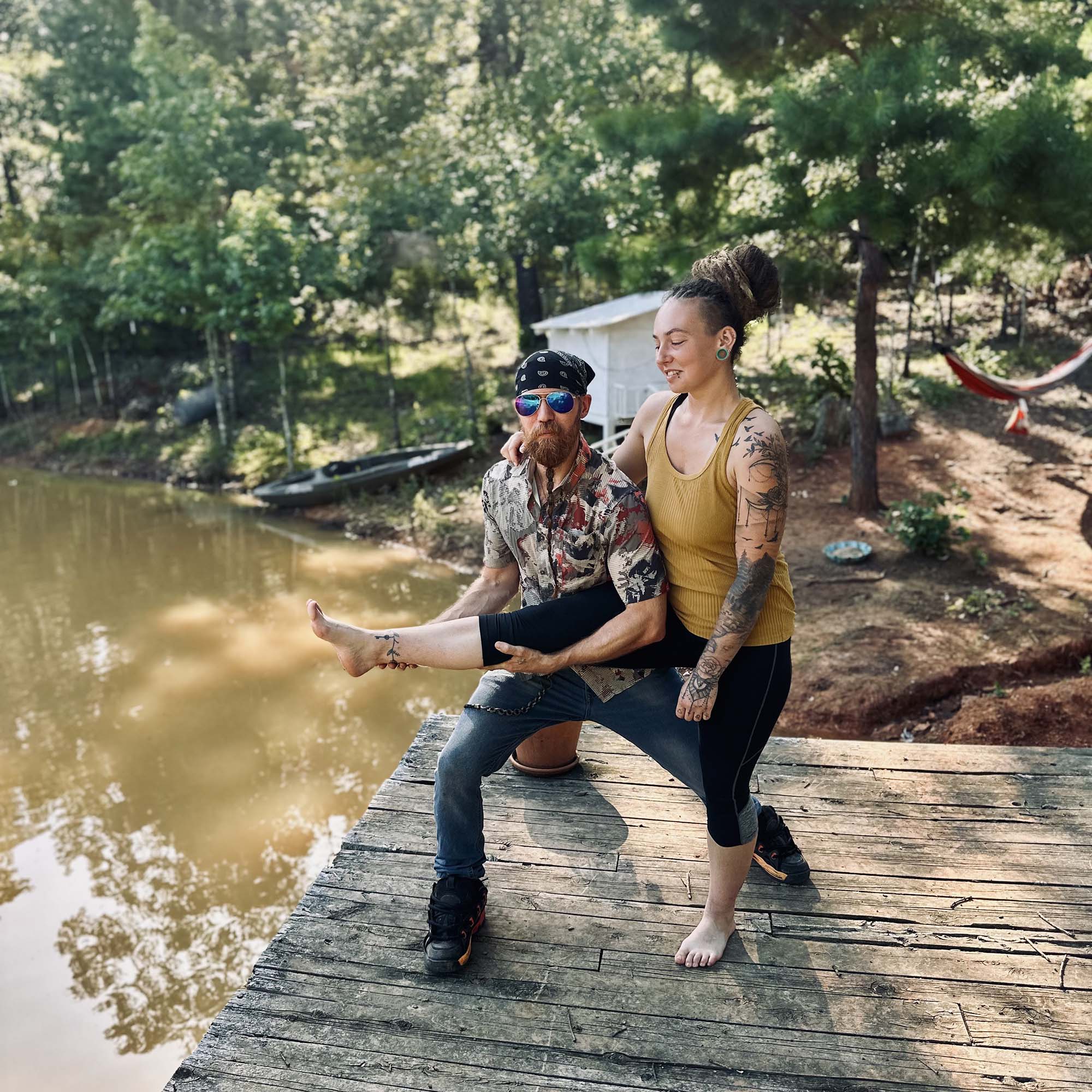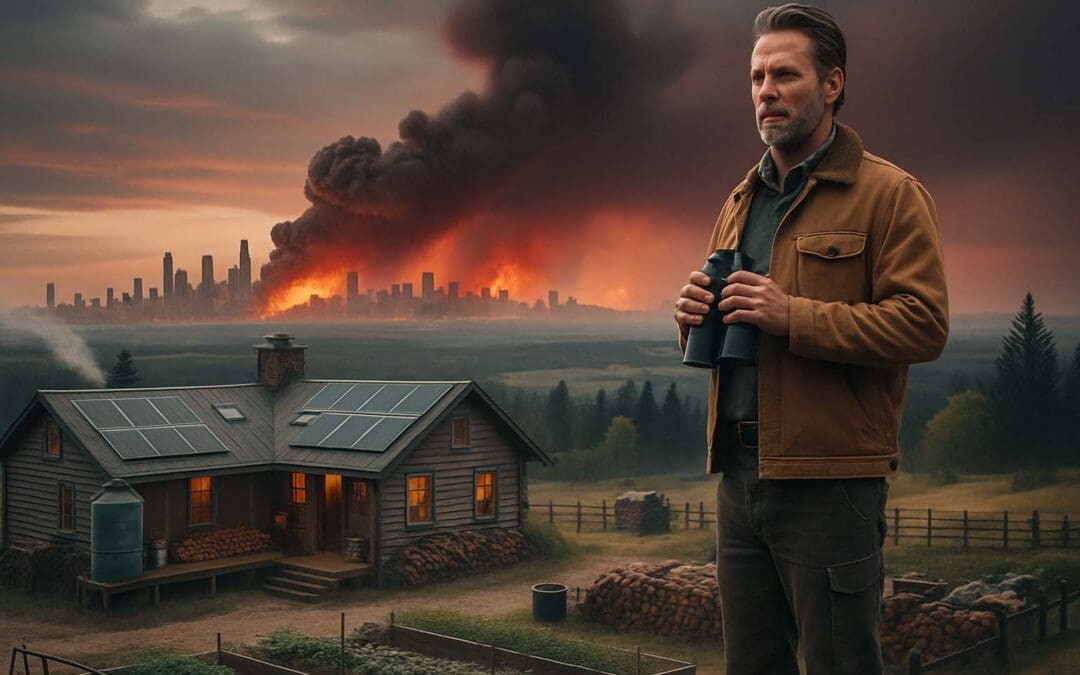The phrase civil war is trending again in America. After recent acts of political violence, many people are asking an uncomfortable question: could a civil war actually break out here at home?
While no one can predict the future with certainty, the possibility of civil unrest, mass polarization, and systemic breakdown is something every family should consider seriously. History shows us that societies can collapse faster than anyone expects — and when they do, the prepared survive.
For those already living off-grid, the foundations of survival are in place. For those still tied to fragile systems, now is the time to rethink your situation.
The Growing Talk of Civil War in America
It’s no secret that political tensions have reached a boiling point. Protests, riots, and even assassination attempts dominate the headlines. The left and right are more divided than ever, and distrust in government, media, and institutions has reached historic lows.
Search engines reveal spikes in phrases like civil war outbreak, how to survive a civil war, and civil war preparation. The possibility of civil war is no longer fringe speculation — it has entered mainstream conversation.
Preparing for instability is no longer paranoia. It is common sense.
What a Civil War Could Mean for Everyday Americans
A modern American civil war would not resemble the 1800s. Instead, it would be fought in the background of everyday life, collapsing systems we depend on.
Supply Chain Collapse
Food would disappear from grocery store shelves in a matter of days. Trucking, distribution, and imports could grind to a halt.
Grid Failure
Civil unrest could destabilize the power grid. Blackouts, internet outages, and fuel shortages would become daily reality.
Lawlessness and Violence
Police forces would be stretched thin, leaving communities vulnerable to looting, riots, and violent crime.
Neighbors Turning on Neighbors
When desperation sets in, even ordinary people resort to extreme measures. Those who failed to prepare would be the first to come knocking.
The outcome is clear: life as most Americans know it would not continue.
Off-Grid Living: The Ultimate Civil War Survival Strategy
This is where off-grid living shines. What many see as an alternative lifestyle is, in reality, a blueprint for survival during national collapse.
Food Security
A self-reliant homestead provides steady food even when stores are empty. Gardens, livestock, food preservation, and seed saving all ensure long-term survival.
Water Independence
Off-grid families build resilience with wells, rainwater catchment, and filtration systems. When city water fails, survival continues.
Energy Resilience
Solar panels, wind turbines, and battery banks mean the lights stay on even when the grid goes down. Refrigeration, communication, and security systems remain functional.
Security and Defense
Homesteads are designed with defense in mind. From property monitoring to firearms training, off-grid families prepare for the threats that come with unrest.
Community and Barter Systems
Self-sufficient living doesn’t mean isolation. Off-grid communities thrive on barter networks, skill-sharing, and local cooperation. In a civil war scenario, these networks become lifelines.
Mental Strength
The peace of mind that comes with self-reliance is invaluable. Off-grid families know they can survive disruptions without panic.
Fear as a Warning Sign
Many dismiss talk of civil war as fearmongering. But history proves no nation is immune. Rome fell. Venezuela collapsed. Regions of Europe and the Middle East are torn by internal conflict.
The United States is not guaranteed immunity. Fear is not weakness — it is a signal to act before it is too late.
Off-Grid Living Is More Than Prepping
Even if a civil war never erupts, the same vulnerabilities threaten modern life.
Natural Disasters
Storms, wildfires, and earthquakes can disable infrastructure for weeks.
Supply Chain Disruptions
The COVID-19 lockdowns revealed how quickly shelves can go empty.
Economic Instability
Inflation and political chaos affect the cost and availability of necessities.
Living off-grid is not just about preparing for the worst. It is about ensuring independence from fragile systems and reclaiming control of your family’s future.
Why We Chose Off-Grid Living
Dakota and I made the decision to live off-grid in Arkansas because we refused to leave our future in the hands of fragile systems. We wanted security, independence, and peace of mind.
If civil war breaks out, we know we can provide food, water, and protection for ourselves. If it never does, we still enjoy freedom from rising costs, unstable grids, and political chaos.
Every small step you take — planting a garden, storing water, setting up solar — is one step away from dependence.
Civil War or Not, Preparation Is Survival
Could a civil war break out in America? None of us can say for sure. But the signs of unrest are undeniable, and the systems people rely on are fragile.
Civil war or not, the future will favor those who prepare. Off-grid living is not only the smartest preparation — it may be the only real path to security and freedom.
Frequently Asked Questions About Civil War Preparedness and Off-Grid Living
Could a civil war really happen in America?
How does off-grid living help in a civil war scenario?
What are the first steps to preparing for civil unrest?
Is off-grid living only for preppers?
What skills are most valuable during civil war or collapse?
Can I prepare for civil war while still living in the city?

Support Our Homestead Journey
If you found this article valuable and want to support what we do, there are a few ways you can help us continue sharing resources about off-grid living and preparedness.
Connect With Us Online
Follow our journey and join the community of like-minded homesteaders and preppers. We share tips, stories, and behind-the-scenes looks at our off-grid life.
Read Our Off-Grid Living Ebook
Want a deeper dive into self-sufficiency? Our book The Ultimate Guide to Off-Grid Living covers everything from starting your first garden to energy independence and long-term survival strategies.
Try Our Herbal Tea
We handcraft small-batch blends inspired by life on our homestead. Our teas are designed to bring warmth, energy, and a taste of the off-grid lifestyle straight to your cup.

